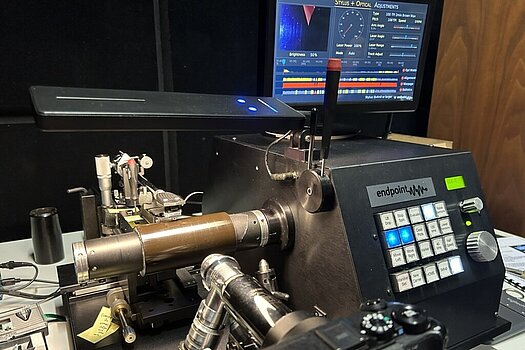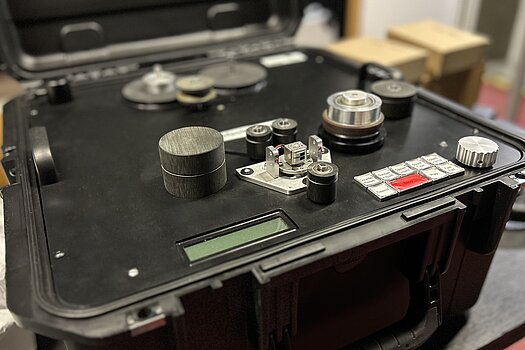Laser scanning of cylinders & sound wire digitization
Nicholas "Nick" Bergh, founder and owner of "Endpoint Audio", visited the Phonogrammarchiv and delivered two almost unique machines he made himself from California to Vienna. The machines will initially be used in two projects based at the Phonogrammarchiv. Nick works in the field of sound and film sound transfer and sound restoration, and is a consultant on recording history, restoration and the replay of degraded or damaged media and unique formats.
The first machine is a cylinder playback device which, in addition to being able to play cylinders mechanically with the highest precision, can also scan them optically without contact using a laser: this process is particularly suitable when cylinders are cracked, broken (or in parts) or severely deformed.
The second machine is a playback device for audio wires, another highly interesting medium from the 1940s:
the sound wire is slightly thicker than a human hair and is played at a very high speed of around 60cm/s –potentially resulting in impressive sound quality, but is also prone to mechanical problems, especially when winding or unwinding the wire. The results produced by the Endpoint wire player clearly surpass those of any wire player made in the 20th century.
The purchase of the cylinder player, which only exisits four times in Europe, was realized through the Fonoteka project via the Volkswagen Foundation, and the player for sound wires was purchased through the Austrian Academy of Sciences' Innovation Fund.
The technical team at the Phonogrammarchiv received several days of training in setting up and handling the equipment and operating the software. Nick also kindly gave a talk on the history of electrical disc cutting to Phonogrammarchiv staff and other professional audience interested in the topic.

